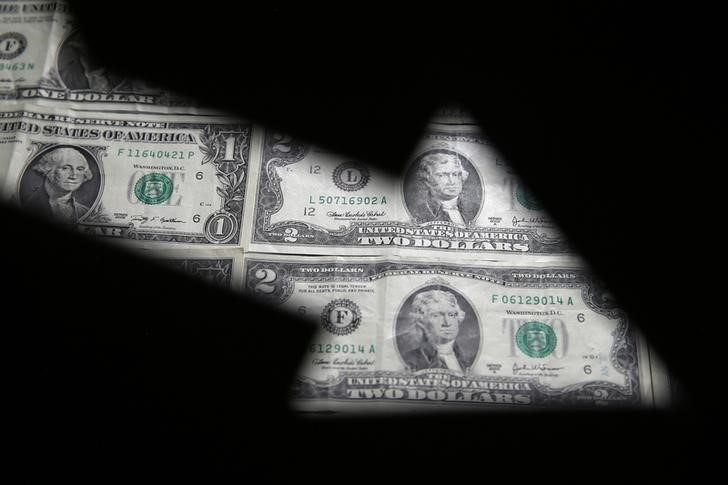 © Reuters.
© Reuters.
By Ambar Warrick
Investing.com-- Most Asian currencies extended gains on Thursday, while the dollar slipped further after Federal Reserve Chair Jerome Powell said that the central bank will likely slow its pace of future interest rate hikes, although weak economic data prints from China stifled sentiment.
The Japanese yen was among the best performers, rising nearly 1% to 136.76- its strongest level to the dollar in more than three months.
The currency was also aided by data that showed Japanese capital spending rose at its fastest pace in four years during the third quarter, which drove up hopes that the country’s shock contraction in its third quarter GDP will be revised more favorably.
The Chinese yuan rose 0.2% after rallying over 1% in the prior session amid hopes of a broader lifting of COVID-19 restrictions in the country. Two major Chinese cities relaxed some COVID restrictions this week amid growing public ire towards the government’s zero-COVID policy.
But weak economic data tempered optimism over the Chinese economy. A private survey showed China’s manufacturing sector- a bellwether for the economy- shrank for a third consecutive month in November, amid increasing pressure from anti-COVID measures.
This likely sets up the country for an economic contraction in the fourth quarter.
Broader Asian currencies extended gains on Thursday, while the dollar fell further. The Malaysian ringgit led gains across Southeast Asia with a 0.8% jump, while the Indian rupee firmed 0.3%.
Among Antipodean currencies, the Australian dollar rose 0.4%, while the New Zealand dollar jumped 0.6%.
The dollar index and dollar index futures both sank 0.3% and hovered near a 3-½ month low, after plummeting over 1% in the prior session.
But the greenback steadied on Thursday, while a risk-on rally appeared to be slowing amid warnings on the U.S. economy and uncertainty over the path of monetary policy.
While Powell flagged smaller rate hikes, he also warned that U.S. interest rates will peak at higher-than-expected levels due to stubborn inflation. Comments from Fed members in recent weeks reinforced the notion that future rate hikes will depend on the path of inflation.
The Fed’s Beige Book also underlined increasing amounts of pessimism over the U.S. economy, due to uncertainty over inflation and rising rates.
Concerns over Asian economies also grew following a slew of weak economic readings this week.
The South Korean won lagged its peers on Thursday after data showed the country’s trade deficit widened even further in November, due to worsening demand for its exports and increasing imports.

